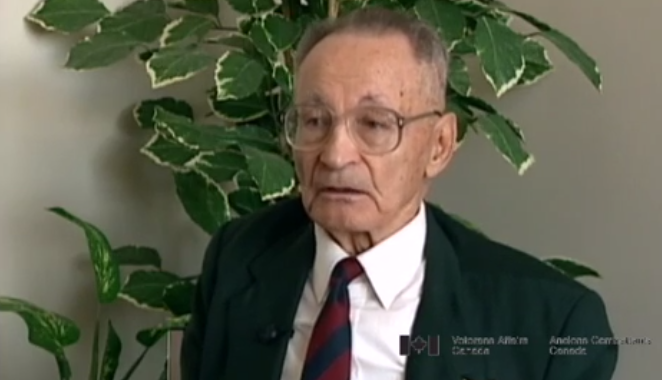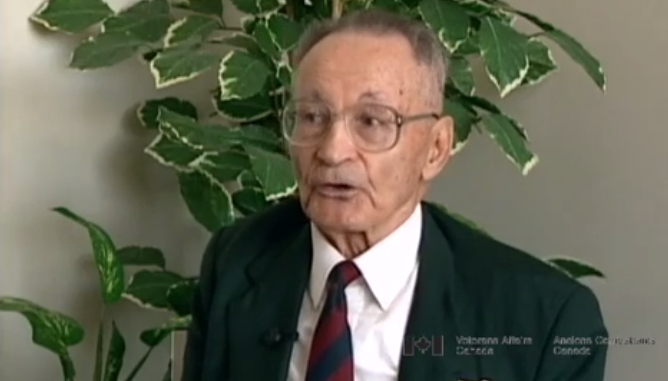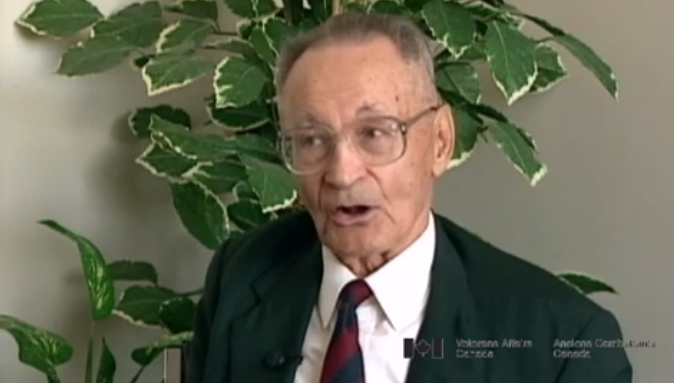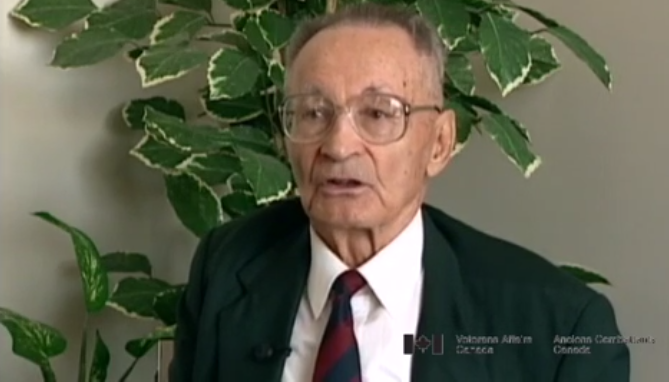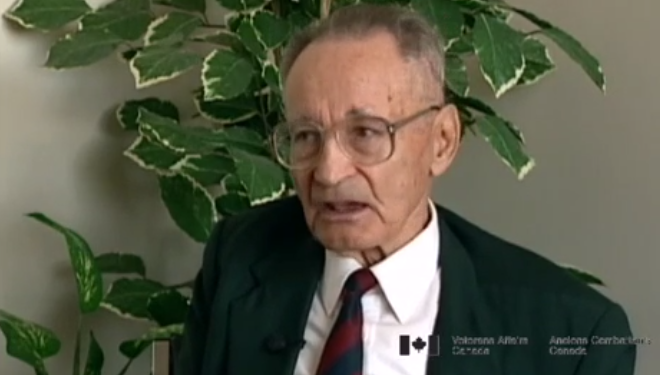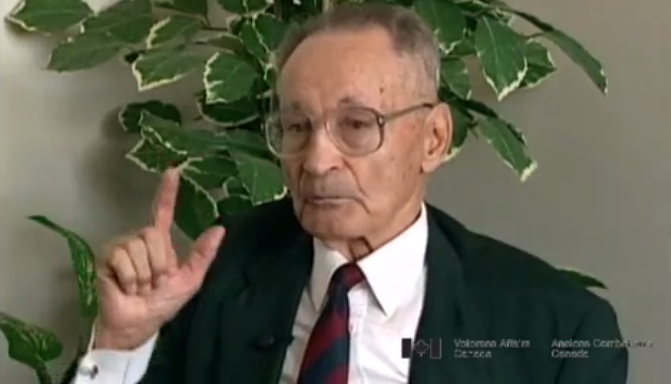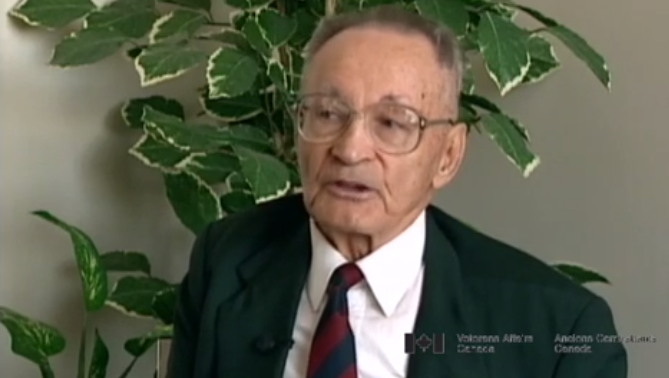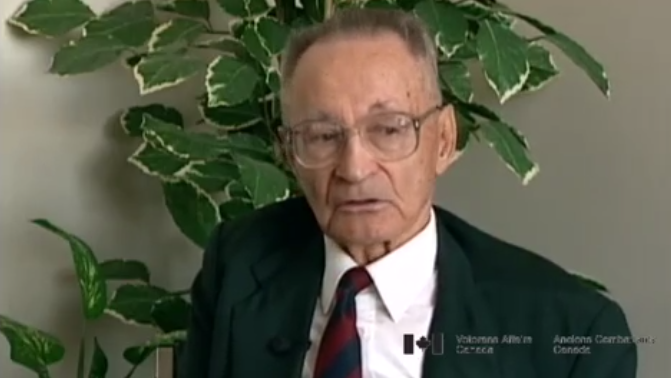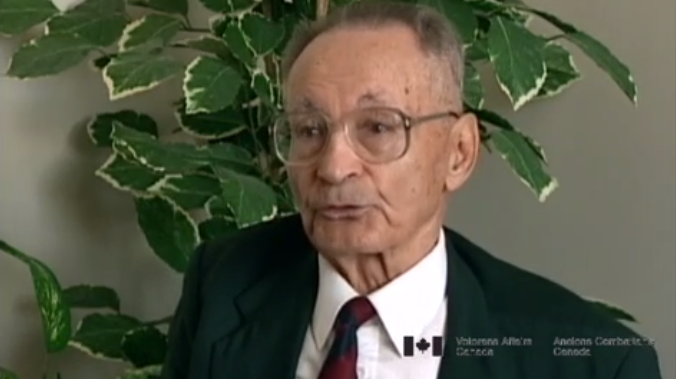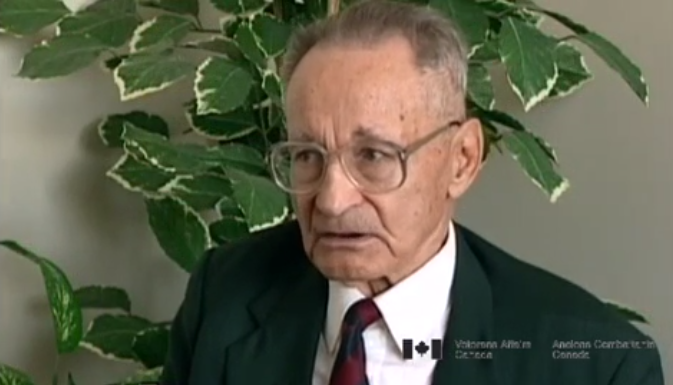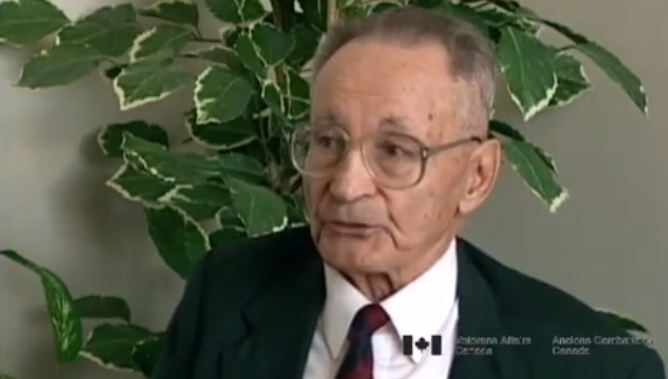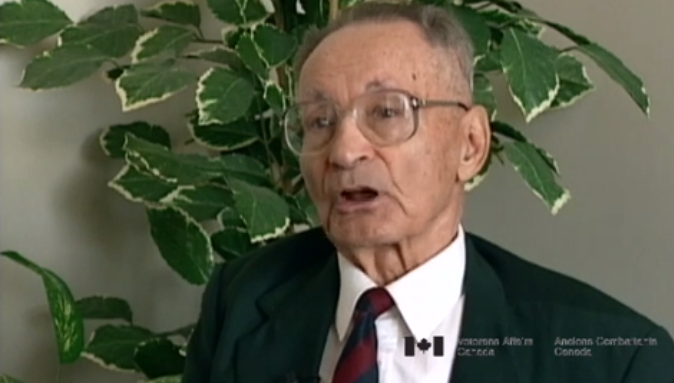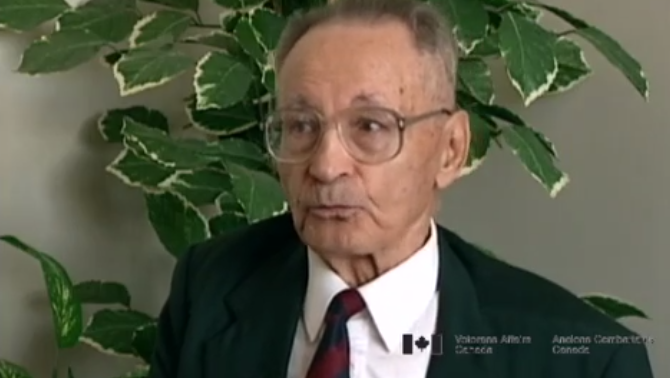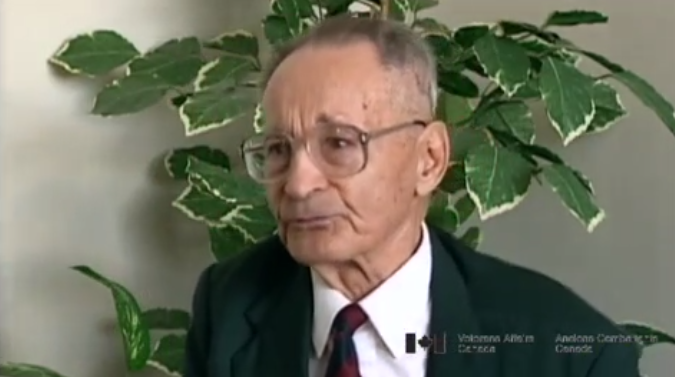We Hadn’t a Chance at All
Heroes Remember
We Hadn’t a Chance at All
Transcript
Description
Mr. Bérard reflects on the dilemma of the Hong Kong defenders from a tactical perspective.
Léo Paul Bérard
Léo Paul Bérard was born in Ste Anne des Chenes, Manitoba, in 1915. He was one of only four of the family’s thirteen children to survive. His father was a farm and forest worker. Mr. Bérard studied carpentry in school, and helped his crippled brother to learn the trade. In 1933, he enlisted with the Winnipeg Grenadiers to join their ball team - he was given the rank of corporal. He pursued extensive NCO training, attaining the rank of sergeant. Mr. Bérard offers us a view of the Honk Kong/Japan internment through the eyes of a soldier who deeply respected his officers and men, and who was in turn respected by them. Many of his clips include very personal references of this sort. After returning from the war, Mr. Bérard remained in the Army, where he trained soldiers for the Korean deployment.
Meta Data
- Medium:
- Video
- Owner:
- Veterans Affairs Canada
- Duration:
- 3:48
- Person Interviewed:
- Léo Paul Bérard
- War, Conflict or Mission:
- Second World War
- Location/Theatre:
- Hong Kong
- Battle/Campaign:
- Hong Kong
- Branch:
- Army
- Units/Ship:
- Winnipeg Grenadiers
- Rank:
- Sergeant
- Occupation:
- Platoon Leader
Related Videos
- Date modified:



